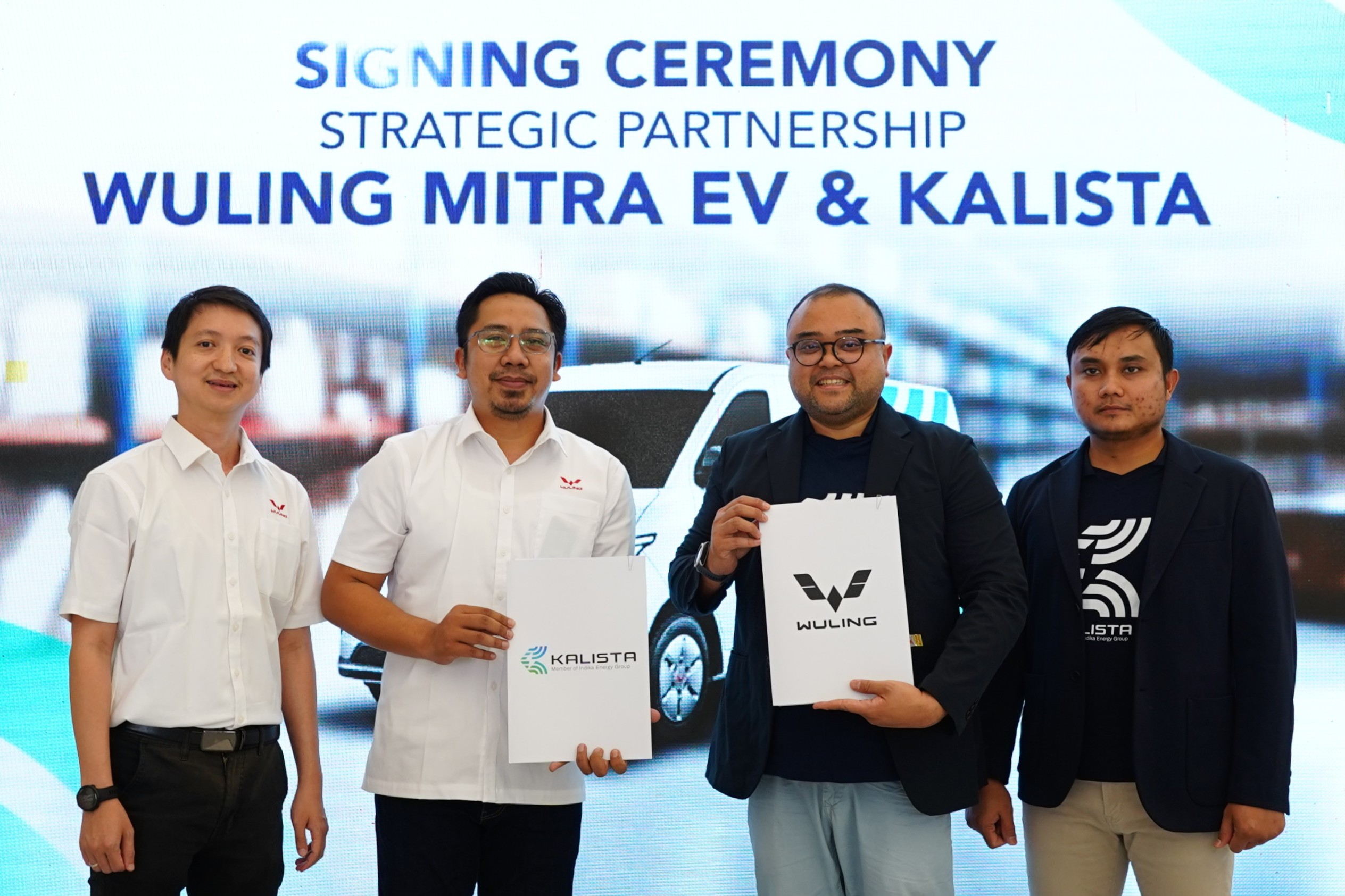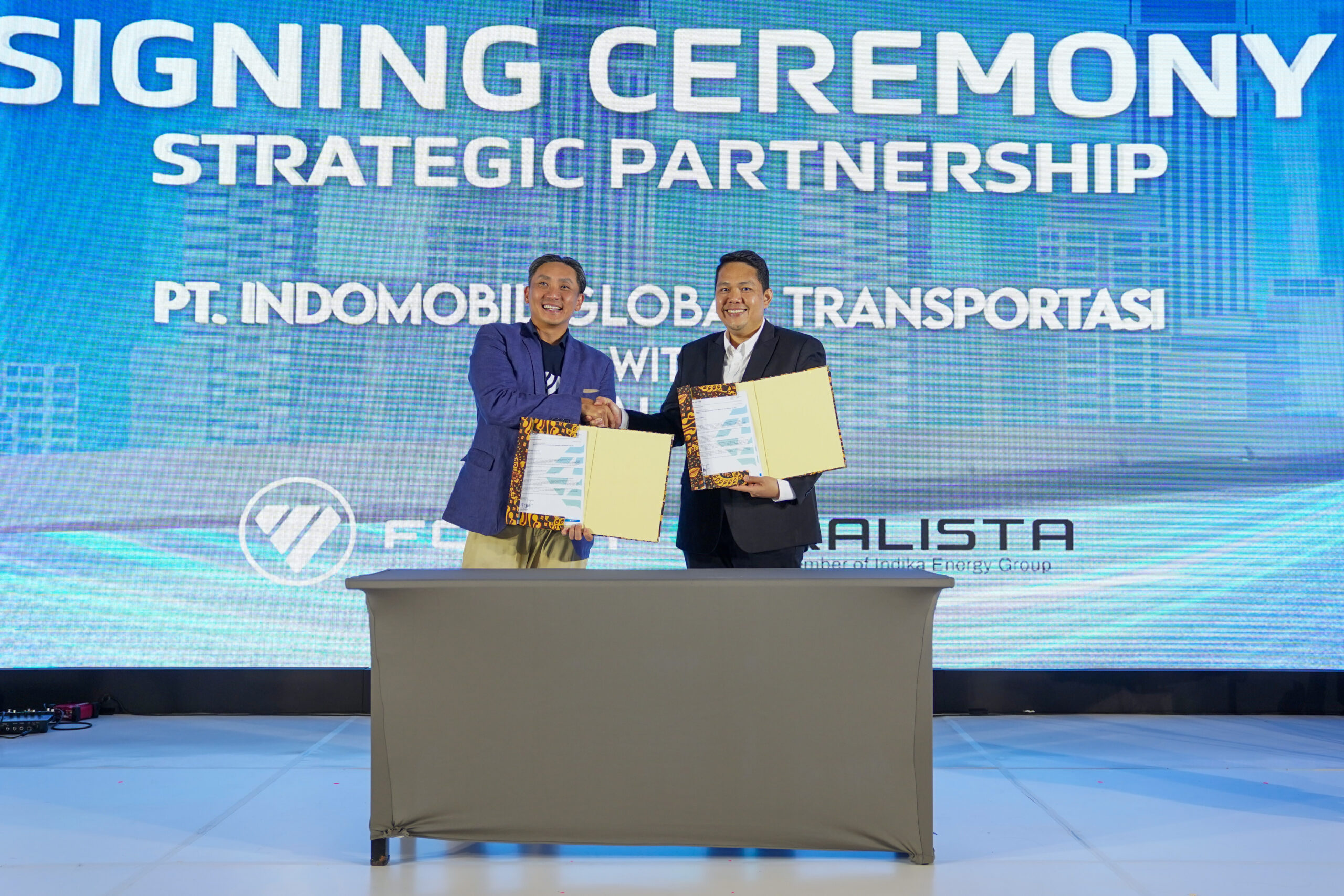
KALISTA Partners with PO Sumber Alam for Electric Bus Trial on the Jakarta–Yogyakarta Route
Press Release
First intercity-interprovincial trial using an electric bus with an average distance of 541 km, proving the readiness of a sustainable transportation ecosystem
Jakarta, July 24, 2025 – The perception that electric buses are not yet ready to serve long-distance travel remains one of the main challenges in the transition toward low-emission transportation. For KALISTA and PT Sumber Alam Ekspres (PO Sumber Alam), however, this challenge became an opportunity to #BuktikanBisa. Together, they launched Indonesia’s first-ever electric bus trial for intercity-interprovincial (AKAP) routes, covering an average distance of 541 km between Jakarta and Yogyakarta. This initiative also paves the way for other AKAP operators and public transportation stakeholders to begin exploring EV adoption for long-distance routes.
Meeting Challenges with Solutions
“When we talk about challenges, that’s exactly where we see an opportunity to test the strength of our system—from planning to operations—not just providing the vehicle, but the entire supporting ecosystem: infrastructure, human resources, monitoring systems, and responsiveness to potential issues on the ground,” said Albert Aulia Ilyas, President Director of KALISTA.
KALISTA collaborated with PO Sumber Alam, a seasoned AKAP operator with an extensive network, in conducting a one-month electric bus trial. Driven by a spirit of collaboration and a shared vision of delivering efficient and eco-friendly long-distance transportation, both parties tested the endurance and readiness of electric buses under real operating conditions. KALISTA provided the unit and technical support free of charge, while Sumber Alam granted access to the route and real operations. Through this one-month trial program, KALISTA demonstrated its commitment to building market trust in EVs, particularly in the AKAP segment, which has long been skeptical of EV performance.
“Initially, we were quite skeptical,” admitted Anthony Steven Hambali, President Director of PO Sumber Alam. “But after seeing firsthand how KALISTA delivered an end-to-end solution, how charging was done seamlessly, and how passengers remained comfortable, we began to see that EVs are not just a concept—they are the future. Especially considering the energy efficiency and cost savings, the results are convincing.”
Realistic Operations, Ready Technology
The trial began from Sumber Alam’s Pool in Pondok Ungu to Yogyakarta, with an average distance of 541 km. The charging schedule was designed efficiently, with two stops at strategic locations—Cikamurang Rest Area and Ajibarang—timed to coincide with meal breaks. Total charging time for the entire journey, including two sessions, was under 75 minutes, with average travel time of less than 14 hours.
From the drivers’ perspective, the electric bus was more comfortable thanks to its quiet cabin and light maneuverability. Passengers appreciated the smoother ride with minimal vibration. There were no cases of technical failure or breakdown, and operational data recorded an energy efficiency of 0.63 kWh/km, achieving operational cost savings of up to 54% compared to diesel buses. Emissions were also reduced by 28%, making the journey not only efficient but also environmentally cleaner.
“What’s interesting is that regenerative braking worked very well on downhill routes such as Ajibarang,” explained Albert. “These kinds of insights cannot be proven through simulation alone—they must be tested directly in the field.”
More Than Just a Vehicle
For KALISTA, this trial was not only about technical performance but also about validating the readiness of the entire ecosystem and its end-to-end solutions for EV adoption on intercity routes. From route adjustments, energy management, to on-ground support, important lessons were learned to refine future services. Challenges such as adapting conventional fleet operations to EV systems became valuable experiences that further strengthened KALISTA’s foundation in delivering sustainable mobility solutions.
In this trial, KALISTA not only provided the bus but also real-time monitoring systems, charging infrastructure in collaboration with PLN and rest area operators, as well as 24/7 operational team support at every checkpoint. Technical SOPs, driver training, and contingency measures were all delivered end-to-end.
“For us, this trial is not just about the unit. We want to prove that the EV ecosystem can work end-to-end and be responsive,” Albert continued. “From these field learnings, we now know which challenges need to be addressed at a larger scale.”
For PO Sumber Alam, this experience opened new perspectives.
“We could directly feel the difference in operations compared to diesel fleets. The most noticeable were efficiency, comfort, and reduced noise,” Anthony explained. “Of course, there was an adaptation process at the beginning, but that’s part of transformation.”
“Through this trial, we were able to test how ready our system is to operate end-to-end—from route design, energy efficiency, to the responsiveness of our operational teams under real conditions,” Albert added.
Time for Other Operators to #BuktikanBisa
The success of this trial proves that electric buses are no longer limited to short inner-city trips. With proper planning and a well-prepared ecosystem, intercity travel—even AKAP routes with an average distance of 541 km—can begin transforming toward an electric future.
“We see this as just the beginning. Our hope is that more AKAP operators will be willing to change, to test, and then to adopt this solution,” Albert emphasized. “We are ready to partner, just as we did with Sumber Alam, to prove that EV systems are reliable—today, not tomorrow.”
Anthony concluded with a shared hope:
“If we want Indonesia’s transportation to move forward and become greener, we must start taking steps. The step doesn’t have to be big at first—what matters is the courage to try.”
About KALISTA
KALISTA is a fleet-as-a-service (FaaS) company providing end-to-end solutions with a comprehensive ecosystem to ease consumer transitions to EVs. KALISTA is committed to accelerating the adoption and transition of commercial EVs and building a sustainable mobility ecosystem.
For more information about KALISTA, please visit: www.kalista.co.id
Contact:
Maura Aniasa Rinjani – Marketing Manager, PT Kalista Soter Hastia
Website: www.kalista.co.id | Email:


